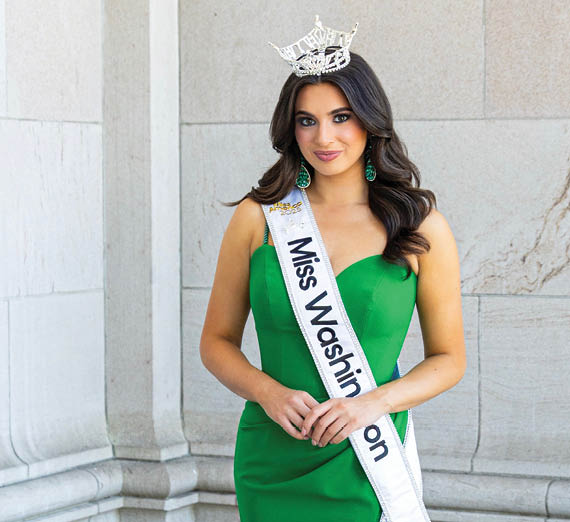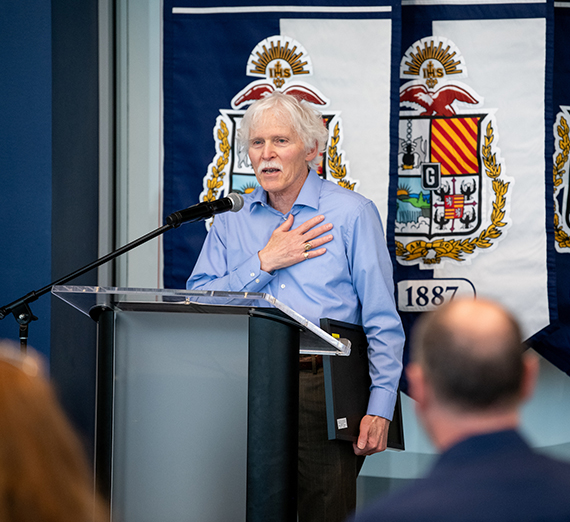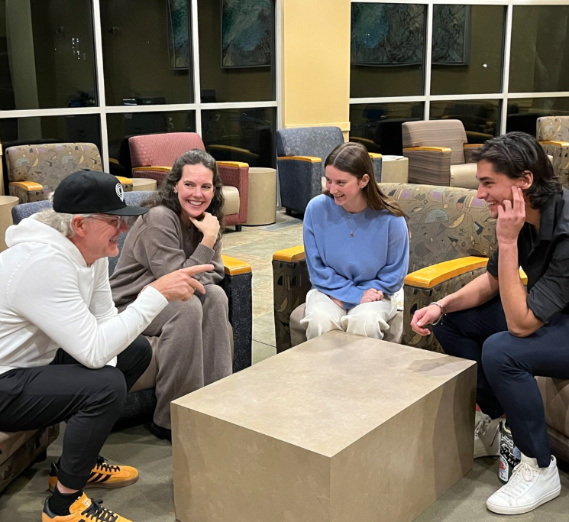Happiness: Academically Speaking

Happiness and joy have the potential to reach the world through every field of study.
In theatre, students have investigated the connection between happiness and heartache through the play “Gruesome Playground Injuries.” In religious studies, they can explore the joys of Catholic traditions like the celebration of Mass, as well as the tenets of other religious belief systems. Professor John Sheveland shares Buddhist teachings, including one of the four boundless attitudes that focuses on the joy of others – impartial and unrestricted in its scope toward all sentient beings. Philosophy students often read works of C.S. Lewis, whose book “The Four Loves” explores the nature of happiness.
Psychology classes discuss happiness as both a cause and an effect of positive outcomes. Department Chair Monica Bartlett may have been selected for a spotlight in this feature because students named her as someone who “exudes” joy. But she has academic expertise on the subject, too.
In her Human Flourishing course, Bartlett’s students explore human strength and well-being, positive emotions and their functions, correlates of thriving relationships, the benefits of forgiveness, and the outcomes of human character strengths (such as bravery, kindness and humor). Her research lab on Positive Emotion and Social Behavior studies gratitude and how it helps build social relationships and boost a personal sense of well-being.
Academic discussion on happiness and joy is not limited to the humanities. In the School of Business Administration, Marketing Professor Peggy Sue Loroz focuses on how marketers can help consumers improve their well-being and happiness not just through buying things but also by making good choices in health-related, financial, environmental and other pro-social contexts.
Within the philosophy department, entire courses are devoted to happiness, and offerings from Erik Schmidt and Mark Alfino are in high demand among students. Happiness Studies is an interdisciplinary field of studies gaining momentum as well. Alfino says happiness courses (at Gonzaga) date from the early 2000s and “reflect an empirical research base in psychology, political science, economics and other disciplines that is only about 10-20 years older than that. Of course, philosophy has a global literature on happiness that goes back 2-2.5 millennia, but the contemporary study has added many new avenues for reflection.”
Alfino adds, “For both students and faculty, studying happiness can have a great impact since it has such obvious personal implications.
Questions for Reflection (From Mark Alfino’s course on happiness)
- How objective, real, subjective is happiness?
- What roles do fate and luck play? Wealth? Love?
- To what extent can we influence our general happiness by the things we do?
- What insights and practices from philosophical and religious thought may have an impact?
- What do I need to know and practice to be happy?
Further Reading (Faculty Recommendations)
“Stumbling on Happiness” by Daniel Gilbert
“The Paradox of Choice: Why More is Less” by Barry Swartz
“Authentic Happiness” by Martin Seligman
“Finding True Happiness: Satisfying Our Restless Hearts” by Fr. Robert J. Spitzer, S.J.
“Surprised by Joy” by C.S. Lewis
“The Art of Happiness” by The Dalai Lama
“The Blue Zones of Happiness: Lessons From the World’s Happiest People” by Dan Buettner
- Academics
- College of Arts & Sciences
- School of Business Administration
- Gonzaga Magazine





